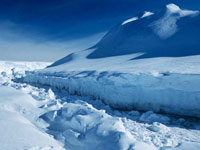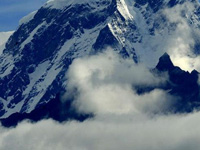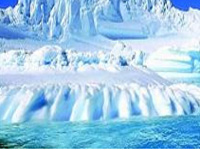State of the Climate in Asia 2024
<p>The World Meteorological Organization’s State of the Climate in Asia 2024 report warns that the region is warming nearly twice as fast as the global average, driving more extreme weather and posing
<p>The World Meteorological Organization’s State of the Climate in Asia 2024 report warns that the region is warming nearly twice as fast as the global average, driving more extreme weather and posing

Up to four times more coastal glaciers in Greenland are at risk of accelerated melting than previously thought, say scientists who have mapped the region's coastal seafloor and bedrock beneath its massive

Aparna Pande, director of Hudson's India Initiative, said that weak states and contested sovereignties across the Himalayas have induced a number of regional actors to seek deeper physical and economic
CALGARY, Alberta (Reuters) - Arctic sea ice may be thinning faster than predicted because salty snow on the surface of the ice skews the accuracy of satellite measurements, a new study from the University
<p>Changes in the abundance and area of mountain lakes in the Djungarskiy (Jetysu) Alatau between 2002 and 2014 were investigated using Landsat imagery. The number of lakes increased by 6.2 % from 599

Melting ice is causing coastal waters in Greenland to become less saline, which may in turn affect marine life as well as the global ocean currents that keep Europe warm, a study warns. For the first
Warming soils are releasing more carbon into the atmosphere than previously thought, suggesting a potentially disastrous feedback mechanism whereby increases in global temperatures will trigger massive
<p>Order of the National Green Tribunal in the matter of Abhimanyu Rathor Vs. State of Himachal Pradesh & Others dated 19/09/2017 regarding degradation of environment and receding of the glaciers at

Scientists say one-third of the ice stored in Asia's glaciers will be lost by the end of the century even if the world manages to meet its ambitious goal of keeping global warming below 1.5 degrees Celsius,
Asia’s mountain glaciers will lose at least a third of their mass through global warming by the century’s end, with dire consequences for millions of people who rely on them for fresh water, researchers
Glaciers in the high mountains of Asia (HMA) make a substantial contribution to the water supply of millions of people, and they are retreating and losing mass as a result of anthropogenic climate change3